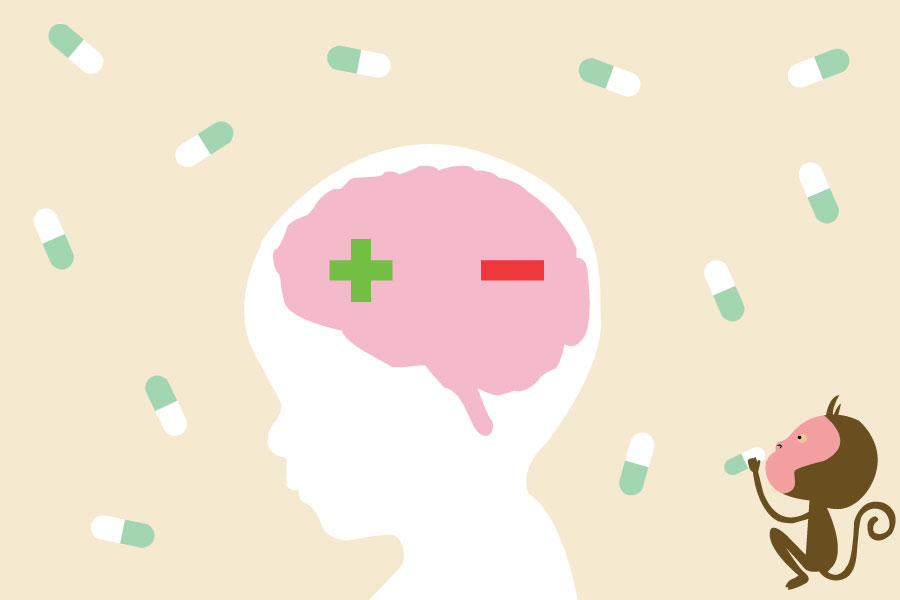
Chronic fluoxetine doses affect social interactions, attention abilities
An experiment at the National California Primate Research Center revealed genetics can play a role in how young primates respond to chronic doses of Prozac (fluoxetine). Eight papers have so far been published about the many results found in this project, which was funded by a five-year grant from the National Institutes of Health.
One-year-old rhesus macaque monkeys were given fluoxetine for two years, followed by a year of no doses. Cognitive and behavioral tests were performed periodically to measure metrics such as attention, impulsivity, social interactions and sleep.
“We discovered that monkeys treated with fluoxetine had increased social behavior with their buddy, increased impulsivity in a reward delay task, impaired sustained attention in CANTAB computer cognition tasks, and had more disturbed sleep than those not treated with fluoxetine,” said Alicia Bulleri, a staff research associate at the California National Primate Research Center.
Serotonin affects mood, cognitive function and social behavior. Fluoxetine functions as a selective serotonin reuptake inhibitor (SSRI), keeping serotonin active longer between cells. Monoamine oxidase A (MAOA) is one of the proteins that helps break down serotonin, keeping mood and social behavior in a stable chemical cycle. The most exciting experimental result involved differences in MAOA genes, which code for monoamine oxidase A enzymes.
“I think the most surprising discovery was the gene interactions,” said Dr. Mari Golub, a professor emeritus in the Department of Environmental Toxicology at UC Davis. “We had two different genes we were looking at — the serotonin transporter and the MAOA gene. The serotonin transporter is where fluoxetine acts, so we anticipated all sorts of interactions with the serotonin transporter polymorphism. But we found basically nothing. Instead, we found interactions with the MAOA gene, which is involved in serotonin metabolism, but not directly affected by the drug.”
Fluoxetine is currently prescribed for a host of mood and psychological disorders, including anxiety, depression, autism, attention deficit hyperactivity disorder and obsessive-compulsive disorder. If different versions of the MAOA gene can influence how drugs like fluoxetine affect developing brains, better treatment plans can be developed by researchers and medical professionals.
“An important finding of this study was that some effects of fluoxetine administration interacted with genetics,” said Casey Hogrefe, a staff research associate at the California National Primate Research Center. “Variations in certain genes influenced the effect of fluoxetine on several outcome measures such as long bone growth, peer social interaction, sleep, and cognitive performance. Individual differences need to be taken into account when assessing the efficacy of fluoxetine administration in people, specifically in children.”
Based on the improved sociability of the monkeys in the experiment, fluoxetine may be able to significantly benefit anxious or depressed children. But if the decreased attention spans translates to human children, perhaps fluoxetine is not the best prescription to treat ADHD.
“If a healthy child is misdiagnosed, and they are treated with fluoxetine for an extended period of time, it could have detrimental effects on their attention,” said Edward Hackett, who served as a graduate student in pharmacology and toxicology during this experiment. “This can be extremely impactful in such a pivotal point in a child’s adolescence.”
The new discovery of genetic interactions with fluoxetine will help researchers better understand the serotonin systems in the brain and how MAOA gene expressions can affect responses to medications like fluoxetine.
“Sometimes, when people respond to drugs and it helps them or doesn’t help them, we may be able to predict that based on their genotype,” Golub said. “That’s a big advantage.”
Written by: George Ugartemendia — science@theaggie.org



